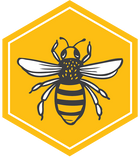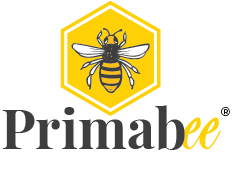CBD Facts: All of Your CBD Questions Answered

CBD has already become mainstream, and if you are just getting acquainted with it, you probably feel left behind, just like a kid who missed school all quarter and joined fellow classmates right before finals.
Starting your CBD journey without knowing the answers to the essential questions can be daunting, intimidating, and even scary. We all have been there once, and finding answers can get challenging with so much contradictory information and misconceptions you can find online. That's why we have answered all your CBD questions so you can leave frustration and overwhelms behind and begin your CBD journey like a pro.
What is CBD, and why is it legal?
CBD, an abbreviation for cannabidiol, is one of the two most abundant cannabinoids in cannabis plants – hemp and marijuana. Cannabinoids are a group of chemicals that enrich different cannabis strains with different properties and can interact with human endocannabinoid receptors to deliver results. For example, marijuana produces psychoactive effects because its psychoactive cannabinoid, THC, interacts with CB1 receptors in the brain.
CBD derives from marijuana's cousin plant, hemp, which, unlike its relative, isn't psychoactive and is federally legal in the U.S. Any hemp-derived product with less than .3% THC is permitted by law.
Does CBD get you high?
CBD is a non-intoxicating compound, meaning it won't impair consumers and produce the so-called 'high' associated with marijuana consumption. Studies show that CBD not only doesn't drive psychoactive effects even in high doses but can also provide antipsychotic effects. CBD is capable of counteracting THC's intoxicating effects.
What does CBD do?
Like other cannabinoids, CBD travels to ECS receptors through the bloodstream and interacts with the endocannabinoid system. Because of its low affinity for CB1 and CB2 receptors, CBD produces mild and diverse effects. Consumers commonly report its calming and pain-relieving effects in the U.S. CBD consumer report.
Does CBD show up on a drug test?
No drug tests screen for CBD; therefore, CBD itself will now show up on a drug test; however, if the CBD product you have been consuming has detectable THC levels, it could trigger a false positive result.
Does CBD oil have THC?
CBD oil can legally contain up to .3% THC, but some brands go the extra mile to remove even minuscular THC amounts and create broad-spectrum CBD products, such as Primabee's Lo2NoTHC CBD.
What does CBD do to your brain?
Studies suggest that CBD has anxiolytic properties and can reduce autonomic arousal under emotional and physical stress conditions. Moreover, a new study led by UCL researchers found that A single dose of cannabidiol (CBD) helped increase blood flow to the hippocampus, an important brain area linked with memory and emotion.
Can you overdose on CBD?
As CBD is non-intoxicating, it won't produce dangerous effects even in high doses, as psychoactive substances do. Still, there are not enough studies on toxic CBD doses, which currently fall around 20,000mg. Acquiring such a hefty dose of CBD and consuming it is unlikely as a piece of CBD gummy usually contains 10mg of CBD and the typical daily intake ranges between 20-150 mg of CBD. No CBD product on the market has such high CBD doses, and you'd have to consume hundreds or thousands of CBD products at once to achieve dangerous outcomes.
Is CBD the same as marijuana?
CBD and marijuana are not the same; CBD is a compound within cannabis plants, while marijuana is a type of cannabis plant. Marijuana contains high THC amounts and low CBD and is legal in select states and federally illegal. CBD comes from a non-psychoactive variety of cannabis – hemp, which has been legal in the U.S. since 2018.
Does hemp have THC?
Hemp naturally contains low THC doses along with CBD. The law defines hemp as a cannabis plant with less than .3% THC.
What are the three types of CBD?
CBD products fall into three categories – full-spectrum, broad-spectrum, and CBD isolate. Full and broad-spectrum products contain various hemp-derived compounds like minor cannabinoids, terpenes, and flavonoids. Full-spectrum CBD also contains a lawful THC dose in contrast to broad-spectrum CBD, which has non-detectable THC. CBD isolate products contain no other compounds but CBD.
What is the entourage effect?
The entourage effect is a proposed mechanism of different cannabinoids and cannabis-derived compounds working better as a group to produce the impact, like full and broad-spectrum CBD products.
Is CBD oil the same as hemp oil?
CBD oil refers to a product combining CBD extract from CBD flower and leaves with a carrier oil and other ingredients; In contrast, hemp oil usually refers to hemp seed oil made from seeds that contain neither CBD nor THC or other cannabinoids.
How do I know CBD product is of high quality?
FDA doesn't regulate CBD products, so the chances of buying low-grade CBD are high. It won't allow you to achieve expected outcomes and may put your health at risk. The best way to know you are acquiring high-quality CBD is to shop from reputable CBD brands and check third-party lab test results confirming the safety and purity of a product. If the brand doesn't provide test results, shop for other CBD options.





Leave a comment